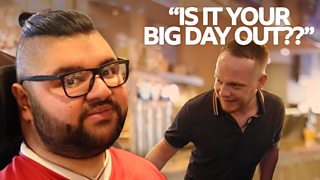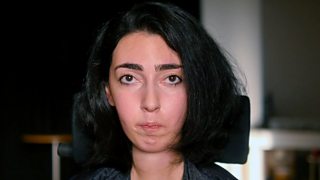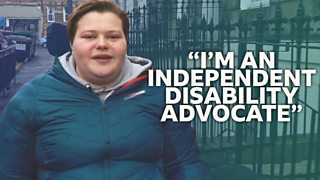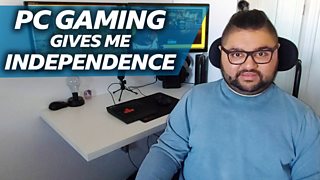My disability means I might not get critical care if I get Covid-19
By Sanjeev Mann // 大象传媒 The Social contributor
My name is Sanjeev and I’m a 23-year-old with Duchenne Muscular Dystrophy – A muscle weakening condition that progresses over time. I’m doing a masters in media, I’m a freelance journalist and I feel I contribute to society as much as the next person.
As a ‘vulnerable’ person, contracting Covid-19 would be potentially fatal and that’s why this means so much to me.

After reading I was deeply frustrated, upset and angry. I felt that my right to life was being strongly neglected.
Effectively, the guidelines set out how to decide if people get critical care or not. It means priority may be given to healthier patients over those assessed to be more ‘frail’ and with a poor prognosis.
I’m upset that the circumstances have meant that these guidelines have had to be introduced and that this was the first reaction when there was a fear that the NHS would become overwhelmed – to take equipment from the frailest in our society.
As you can imagine – being told you might be denied life saving equipment is a hurtful thing to hear, especially for me as a young man with a life limiting condition. It makes me feel like I’m not good enough to live. Should I need to explain why I should be kept alive? I have the same wants as anyone else and I have just as much to give. It is a difficult concept to get your head around.
Reading into the guidelines further, I just feel sad and sorry for those that need to make such decisions. Doctors, nurses and care workers are already working long hours and pulling together to keep the UK alive. For that, words can’t describe how grateful we all are.
Doctors, nurses and care workers need to make these life-defining decisions every day around the world, through no fault of their own. It’s a set of sad, unfortunate and terrifyingly realistic circumstances that have arisen from the Covid-19 outbreak.
What are the NICE guidelines?
NICE guidelines set out the care and services suitable for most people with a specific condition or need, and people in particular circumstances or settings.
You can find more information on the guidelines.
More from Sanjeev
I feared it would come to this. I feared the day of the new NICE guidelines, but now it seems to be official and in writing. We need guidelines to decide what happens and what we do when there simply isn’t enough equipment available, but wouldn’t you have thought we’d be better prepared for such a day? That’s for the experts to decide.
I find myself asking, what’s the alternative? That’s the problem, there’s no real ethical alternative. The only way is to make sure we have enough equipment in place.
I may be vulnerable, but I want to live just like anyone else. I have the same dreams, hopes and aspirations as the next person. I want to experience life to the fullest extent possible. We can help prevent the spread of Covid-19 by flattening the curve and by staying at home.






